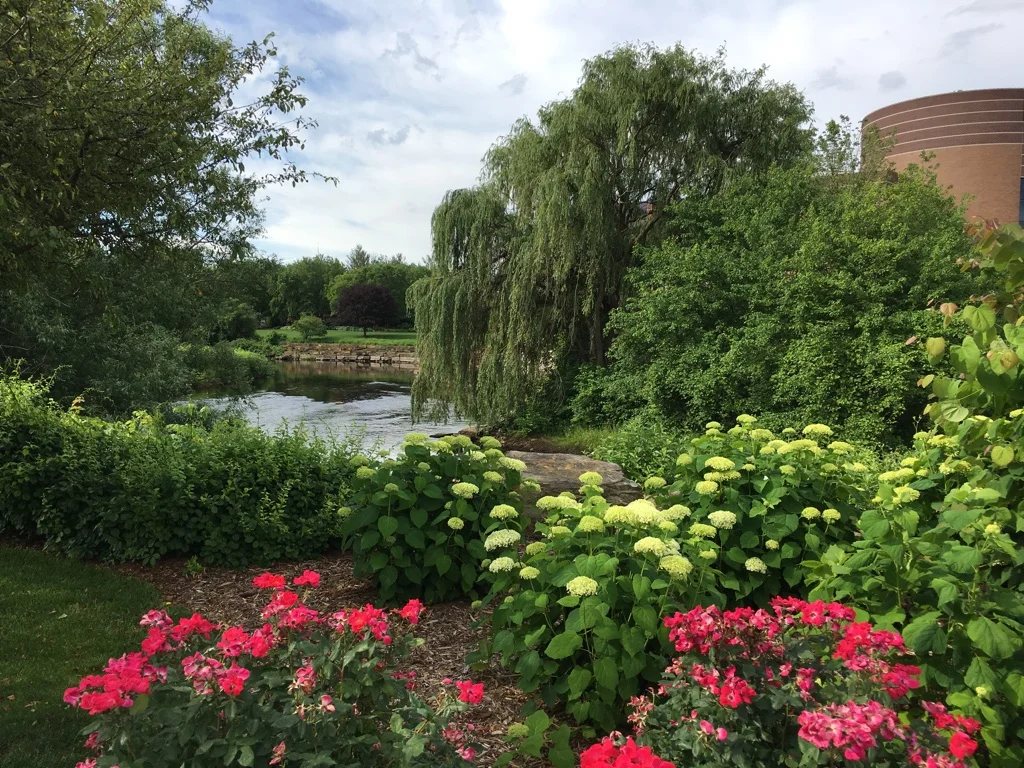Who is Elizabeth Insley?
Elizabeth Insley immigrated from Poland when she was a little girl with her mother, father and three older siblings (two stayed behind in Poland). She grew up in western Massachusetts, where she attended Catholic school, and later went on to graduate from Boston University. After marrying, she moved to Ohio, and in 1998, her and her husband settled in Battle Creek, where they raised their three kids (Elizabeth was a stay-at-home mother). She became a naturalized citizen in 2005.
Excerpt from interview with Elizabeth Insley by Whitney Dow, 2017
Q: So first of all, can you tell me your name, where you’re from, what you do, and a little about your background?
Insley: [11:19:10] My name is Elizabeth Insley. I live in Battle Creek, Michigan. What do I do? Right now, I work with Japanese people to help them learn English and teach them about American culture. They’re here temporarily, and I actually come from—I’m an immigrant and I come from Poland. I was five years old when I came with parents and most of my family.
Q: Can you talk a little about that experience coming to America? Where did you move to? What was the experience like coming here? How did you feel? Did you speak English? Did you learn English? How did you feel accepted when you, as a child landing here?
Insley: [11:19:54] Well, I was five years old so my memory is not all as wonderful. I try not to have the stories fill in the blanks, but I just recently learned accidentally that the ship that I came in, I guess it was an eleven-day trip across the Atlantic. I used to think Bathaudi [phonetic] meant “ship” in Polish, but it didn’t. It was actually the name of the ship. So even all these years later, because we came in 1966, it was kind of like wow! You know? Because my Polish, you know as a five-year-old, had no English. I didn’t even know the ABCs and the two languages are similar in their ABC structure. So I didn’t know Polish ABCs, much less anything about English.
And my trip, I just remember the slight memory of having to leave my two oldest siblings behind because there’s a twenty-age difference between the oldest and the youngest, with six of us in total. And my oldest brother was staying behind, and he was unmarried, and I was wondering who’s going to take care of him. My sister, on the other hand, had been already married, had a child, had a baby who was not much older, or younger than I was. And so I knew she was going to be taken care of. I remember being really sad about that part, but I have no memories of ever really living with my brother and sister because they were older and they weren’t on the farm anymore. But they were still my brother and sister. My brother ended up coming a couple years later but my sister never came to the U.S. because she would have been a factory worker just like the rest of my brothers and sisters and my parents would have been. And there, she was considered educated and her husband was educated. She was a teacher. Her husband was a physical therapist, and rough life nevertheless but much more so better life than they—or that she thought she would have, actually, in the U.S.
Q: Can you tell me a little bit about the experience of coming to the United States? Do you remember what it was like to sort of land here as a child? Or sort of the first five years of your life here, what was it like? Did you feel like an outsider? Did you feel like an American? How did it feel? How was it coming here?
Insley: [11:22:36] Well coming here as a five-year-old, I was a latchkey kid because both of my parents were working. My brother that was supposed to be taking care of me, he’s the closest to me in age. He was nine years older but he didn’t do a really good job of taking care of me. I mean, a teenage boy? I mean, he turned fourteen on the ship or right around that time. So, you know, my parents had higher expectations of what he was able to deliver. So I was a latchkey kid and my parents moved to a community where there was Polish people who spoke Polish. There was a Polish church. The community was kind of divided. They had the Irish church, the French church, and the Polish church.

![How I see my community: Binder Park Zoo - A hidden gem where a membership is well worth its cost & where differences are celebrated even with a wallaby I support [the zoo] by having a membership. I enjoy walking there and never get](https://images.squarespace-cdn.com/content/v1/5a60e23a51a584680d08a45f/1536944164404-ZZBO6GF97R766SW28SJQ/Insley_IMG_2.jpeg)





